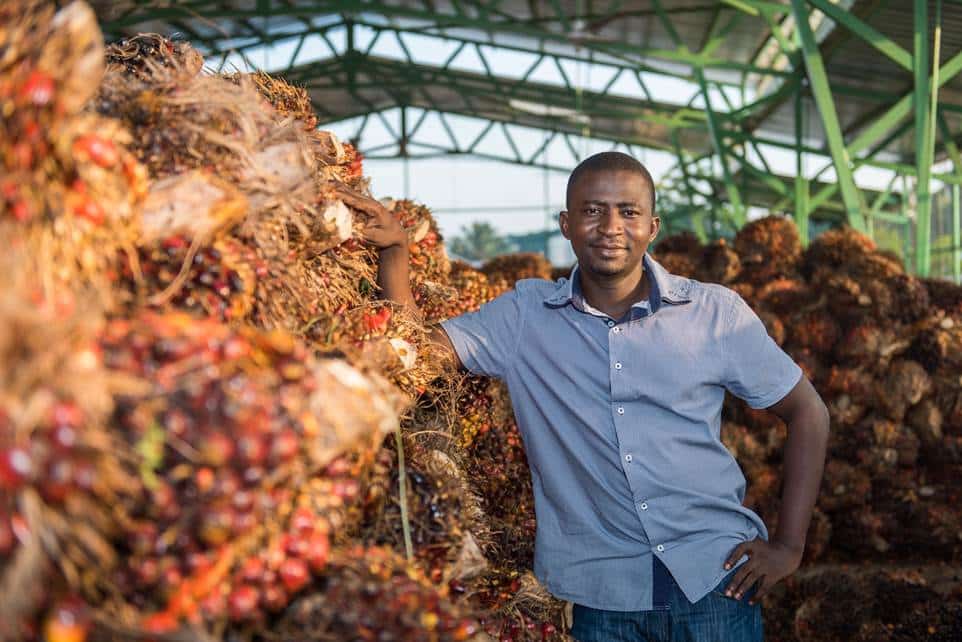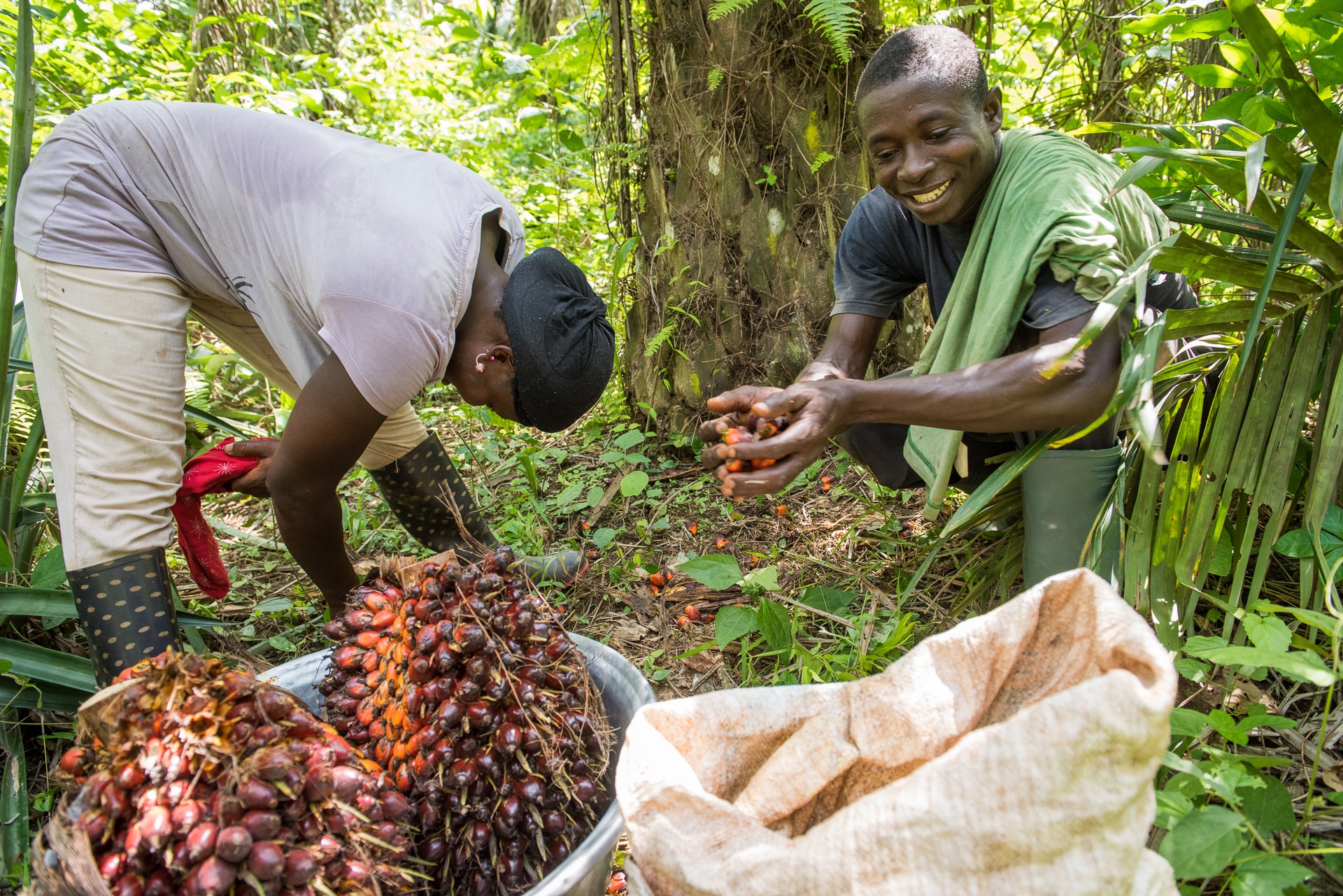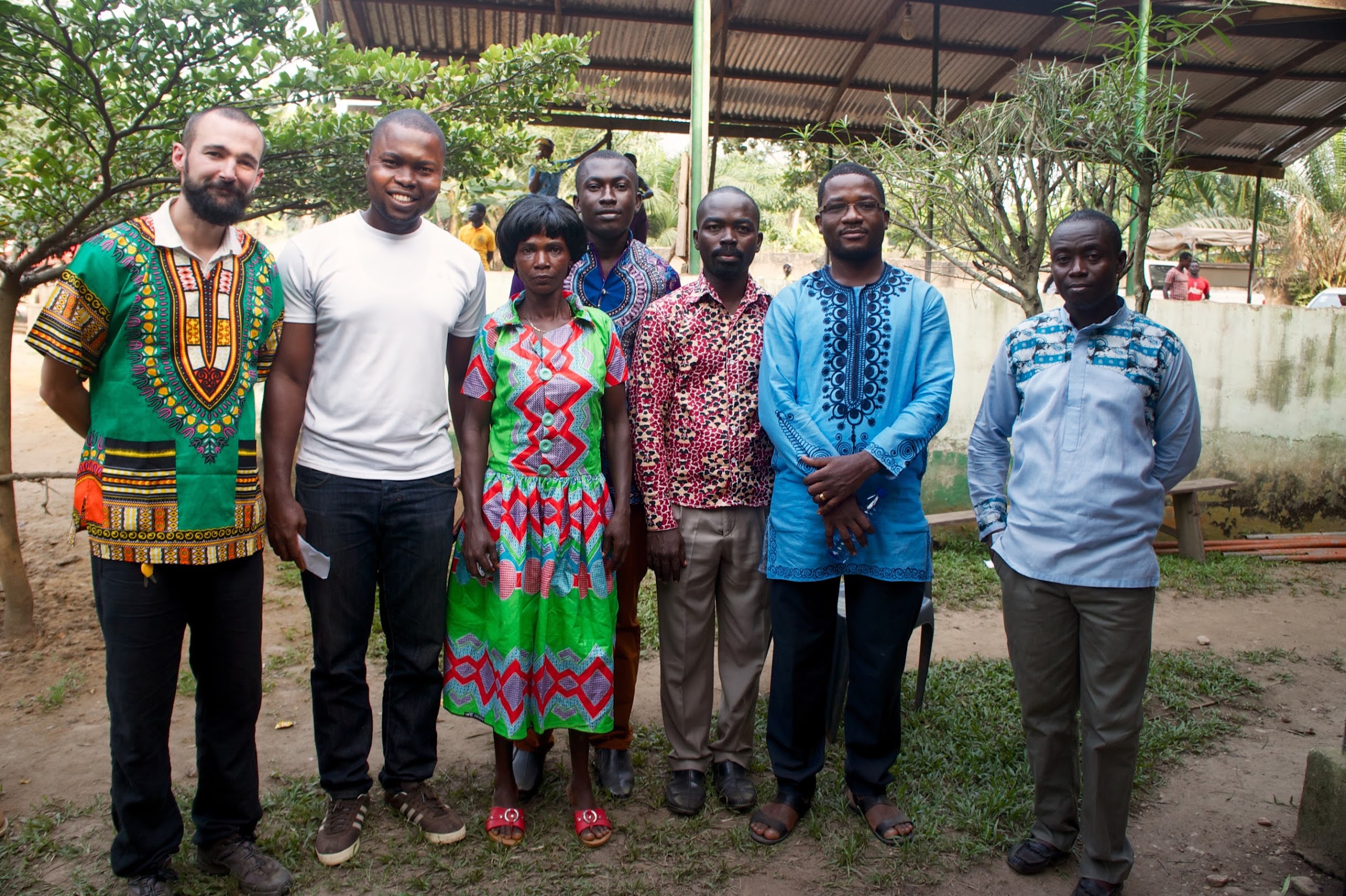
Serendipalm is our sister company in Ghana that supplies us with fair trade & organic palm oil for our soaps. We recently caught up with Safianu Moro, who heads up the team at Serendipalm as Managing Director to learn more about his work there and his vision for the project’s future.
How did you come to work at Serendipalm?
I earned my Bsc. in Agricultural Science at the University of Ghana, Legon, Ghana, and for my required national service, went into an agricultural research center that belongs to the University of Ghana. There, I worked with a lecturer, looking at crops such as oil palm and cassava, conducting research on improving soil fertility. After that I completed my master’s in agricultural extension. Right after that I got to know of Serendipalm, through the lecturer that I had worked with at the research center, who happened to also be the Internal Control System (ICS) Manager for Serendipalm at the time. I joined Serendipalm in August 2010 and started out as a field officer, became ICS Manager in 2011, General Manager in 2013 and am now the Managing Director.
How has Serendipalm grown in the time you’ve been here?
Serendipalm has grown a lot, in all regards. For instance consider the number of farmers in our ICS: when I joined there were a total of about 250 farmers; now we have about 635. The number of production workers when I started was just over 100, and now we have about 230.

As far as change at the factory itself: when I started we had two steamers, two clarifiers and two smaller expellers. Now we have six steamers, four clarifiers, and two bigger expellers. We also added structures: we rebuilt the entire fruit cleaning section so it can accommodate more workers at comfortable conditions.
We’ve also grown economically. It was only around 2013 that Serendipalm achieved production sufficiently large to turn a profit. Because of the premium price we pay to farmers and the wages and benefits to our staff we needed to scale to reduce the high cost of production. We’ve also improved efficiencies all along the process, from the farm through processing, notably the oil extraction rate, i.e. the amount of oil produced from the palm fruits. Finally, our community impact through fair trade projects and our cooperation with the community has expanded considerably.
What do you think attracts people to work at Serendipalm?
Many professional staff come from outside the area to work in Asuom, although it is a small town with few of the amenities available in bigger cities. We have staff from Accra, Kumasi, Sekondi-Takoradi and Cape Coast. They are interested in Serendipalm’s work, the social development aspect of the project — the impact their contribution makes to the livelihoods of community members and farmers. Workers come to us because we offer fair wages and excellent benefits, and we work in an atmosphere of respect. Workers call Serendipalm “the listening company.”

What is your long-term vision for Serendipalm?
We plan to increase our production of crude palm oil from 650 to 900+ metric tons per year. We are also adding the production of organic and fair trade cocoa to our program. Many of our oil palm farmers also grow cocoa, and we could produce up to 1000 metric tons of cocoa beans annually, and already have several customers in the U.S. and Germany for that amount. We plan to improve our mill’s oil extraction rate from 16% to 20%, thus cutting cost of production by some 20%. And since we are supplying two German customers, Rapunzel and GEPA, with oil for food products, we need to maintain high quality and keep free fatty acid content consistently below 4%.
Our vision is also to extend community development projects to the subcommunities under the major communities we are working with, such as Asuom, Abodom, Bomso, Abaam. Previous fair trade projects were concentrated in the town centers, so we are looking at encouraging the fair trade committee to extend services to the places where they are needed most, such as water and sanitation projects in the peripheries of the communities.